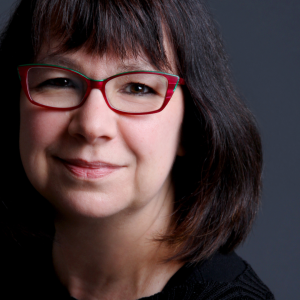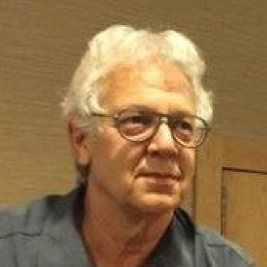The Coalition for the Diversity of Cultural Expressions brings together Canada’s main French- and English-speaking organizations of professionals in the cultural sector. The over 50 associations that are members represent more than 360,000 creators and professionals and 2,900 companies in the cultural sector.
Equally concerned about the economic health of the cultural sector and the vitality of cultural creation, the CDCE is particularly interested in the treatment of culture in trade agreements and the impact of the digital environment on the diversity of cultural expressions.
History and Mission
History
The CDCE was founded in the spring of 1998 by Quebec’s leading cultural associations in the midst of the growing opposition to the proposed Multilateral Agreement on Investment (MAI), which aimed to liberalize cultural goods and services. In the fall of 1999, the CDCE invited the main professional associations in the cultural sector in Canada to join its ranks.
At the international level, the CDCE and the governments of Quebec and Canada have played a fundamental role in ensuring that the dual – economic, but also symbolic and identity – value of cultural goods and services is recognized and in creating a movement that led to the adoption of the Convention on the Protection and Promotion of the Diversity of Cultural Expressions at UNESCO in 2005. The CDCE then made efforts to convince cultural professionals from all continents to create their own coalition to encourage their government to support the Convention. The Convention now has 158 parties, including 157 States and the European Union.
Today, the CDCE includes more than 50 organizations representing creators, artists, producers, publishers and distributors in the book, film, television, new media, music, performing arts and visual arts sectors. The CDCE also provides the secretariat for the International Federation of Coalitions for Cultural Diversity (IFCCD).
Mission
The Coalition for the Diversity of Cultural Expressions (CDCE) is the voice of the cultural community. It promotes the UNESCO Convention on the Protection and Promotion of the Diversity of Cultural Expressions. It ensures its implementation to give it full force of application at the national level.
The CDCE monitors the Canadian government’s commitments under the Convention. It ensures that the government’s capacity to implement policies to support local cultural expressions is properly preserved and deployed; that trade liberalization and technology development do not systematically lead to a standardization of content and a disruption of local ecosystems in the face of foreign investment.
The CDCE works primarily to ensure that cultural goods and services are excluded from trade negotiations and that the diversity of cultural expressions is present in the digital environment. Its role is to:
- Promote civil society dialogue around its priorities and the challenges of the Convention;
- Monitor trade negotiations conducted by the Canadian government to ensure that the exclusion of cultural goods and services from trade agreement negotiations is respected;
- Document the impacts and conditions surrounding the provision of cultural content online;
- Organize meetings and represent its members in the revision of laws and policies that have an impact on the diversity of cultural expressions;
- Provide the secretariat for the International Federation of Coalitions for Cultural Diversity (IFCCD) and participate in debates at UNESCO to support an international network in favour of the diversity of cultural expressions.
Our work
Our Expertise
For more than twenty years, the Coalition for the Diversity of Cultural Expressions (CDCE) has defended the importance of culture in the development of societies, which has earned it an internationally recognized legitimacy.
The Coalition’s role is to mobilize all cultural stakeholders – creators, artists, associations, community organizations, policy makers, academics – at all levels – local, national and international. Its expertise lies in its comprehensive understanding of the issues, its research and its capacity to mobilize.
Cultural exemption in trade agreements
The Convention recognizes in international law the distinctive nature of cultural activities, goods and services as vehicles of identity, values and meaning. This provides the legal argument to justify their exemption from any liberalization commitments in trade agreements. The CDCE conducts analysis, monitors trade negotiations involving the Canadian government and makes representations to ensure that cultural goods and services are excluded from trade agreements.
The CDCE thus ensures the implementation of the Convention, so that the sovereign right of states to promote the diversity of cultural expressions on their national territory through policy measures, including financial assistance, is fully recognized.
The diversity of cultural expressions online
For the CDCE, the diversity of cultural expressions in the digital space is based on:
- The existence of a balanced environment for the creation, production and dissemination of diversified local cultural content;
- The availability and promotion of online cultural content, and its discoverability in Canada;
- The ability of governments to formulate and implement policies to protect and promote the diversity of cultural expressions online;
- Collective capacity, including that of the cultural community, to measure the achievement of public interest objective.
The CDCE’s role is also to conduct research and foster dialogue between cultural, academic and government circles at the national and international levels in order to enable the country’s artists, creators and producers to enrich the national cultural heritage in the best possible conditions in the digital age.
Executive Committee
Hélène Messier

Hélène Messier is a lawyer specializing in intellectual property and has been working in the cultural sector for over thirty years.
Since 2015, she has served as President and CEO of the Association québécoise de la production médiatique after more than 17 years at the helm of Copibec, a copyright collective representing the written and visual arts sector. She was Director of the Union des écrivaines et écrivains québécois from 1988 to 1992, and then worked for six years as Head of Copyright and Director of Business Development and New Media for the Canadian Broadcasting Corporation.
In addition to sitting on the Board of Directors of the CDEC, she is a member of the professional representation committee of Québec Cinéma, the Observatoire de la Culture et des Communications and the Société collective des droits de retransmission.
A member of the Barreau du Québec, she also holds a master’s degree in public administration.
Bill Skolnik

Bill Skolnik is a representative of the Screen Composers Guild of Canada and Co-chair of the CDCE since 2017.
He was previously CEO and Executive Director of DGC Ontario where he led all labour negotiations, policy initiatives and member services—with the DGC Ontario team. Prior to his arrival at DGC Ontario, he was the head of the Canadian Federation of Musicians, a founding member of the Screen Composers Guild of Canada, a Trustee of the Musicians’ Pension Fund of Canada and Treasurer of the Radio Producers’ Association of Canada. Bill is an expert in developing ground-breaking provisions that affect Musicians, Composers and Producers working in the Canadian screen-based and theatre industries.
As a classically trained musician, Bill has worked as a Music Director, Composer, Arranger, Lyricist, and Music Producer. He wrote and arranged for Sesame Street for over a decade and composed the score for over a dozen CBC radio dramas. Bill’s work has been heard in numerous documentaries, in the award winning film My American Cousin as well as on stages across Canada including the Shaw Festival, Alberta Theatre Projects, The Royal Manitoba Theatre Centre, The Arts Club of Vancouver and Young People’s Theatre. Bill was instrumental in the creation of the CBC music service Galaxie, organizing and programming Chamber Music and Pop Classics, and was the CBC Radio Music Producer behind such critically acclaimed specials as the Michael Tippett Tribute to the European Broadcast Union, The Boss Brass Live to the World, The Evolution of Jazz and the late Jeff Healey’s first Jazz broadcast.Born in Montreal, he has lived in Toronto, Calgary and Vancouver.
Jérôme Payette

Jérôme Payette has been General Manager of APEM since June 2015. As a musician and manager, he holds a Bachelor’s degree in Jazz Performance, a Post-graduate diploma in Management of Cultural Organizations and a Master’s degree in Management with a thesis on cultural development. In 2014, he was sent by the Government of Quebec to UNESCO (Paris) to work at the Secretariat for the Diversity of Cultural Expressions. Previously, he was Director of Development for the Laval Symphony Orchestra.
Since 2010, Jérôme has carried out various consulting assignments in the cultural sector for ArtExpert, Torrentiel and to his account. He is involved with the Coalition for the Diversity of Cultural Expressions, the INIS Standing Committee on Mutual Training, the OCCQ Record and Performing Arts Advisory Committee, CAMI, ACCORD and the Coalition for a Canadian music policy.
Carol Ann Pilon

Carol Ann Pilon has been the Executive Director of the Alliance des producteurs francophones du Canada (APFC) since 2016. She sits on Telefilm Canada’s Industry Panel and Diversity and Inclusion Working Group, and is a member of the Ontario Film and Television Production Advisory Committee.
She has served as Executive Director of the Fédération culturelle canadienne-française (FCCF) and the Front des réalisateurs indépendants du Canada (FRIC). Carol Ann holds an Honours B.A. in Communications, Media & Culture from the University of Ottawa. She has also had a career in audio-visual production for over 20 years, during which time she scripted and directed several programs broadcast on Radio-Canada, TFO, TV5, Canal Vie and Bravo.
Christian Laforce

Since 2021, Christian Laforce has been General Manager of Copibec, Quebec’s collective management society for reproduction rights.
Working in the arts and culture sector for over 20 years, he has held a number of management and advisory positions. His goal: to contribute to the improvement of practice conditions for artists and cultural organizations. He has also sat on various boards of directors at local, regional and national levels.
Board of directors
Presentation
The Coalition’s Board of Directors is composed of a minimum of twelve (12) and a maximum of forty (40) Directors. The directors elect from among themselves two co-chairs, two vice-presidents, a secretary and a treasurer, taking care to ensure that the choice of all these officers adequately reflects the francophone and anglophone ecosystems as well as the diversity of the Coalition’s regular members.
Composition of the Board
Officers and members elected at the Annual General Meeting on September 21, 2022:
- Co-Chairs
AQPM – Association québécoise de la production médiatique : Hélène Messier
SCGC – Screen Composers Guild of Canada : Bill Skolnik
- Vice-Presidents
ACP – Association of Canadian Publishers : Kay Rollans
APEM – Association des professionnels de l’édition musicale : Jérôme Payette
- Treasurer
APFC – Alliance des producteurs francophones du Canada : Carol Ann Pilon
- Secretary
Copibec : Christian Laforce
- Directors
Access Copyright : Kate Edwards
Adisq : Simon Claus
ANEL – Association nationale des éditeurs de livres : Audrey Perreault
ANIM – Alliance nationale de l’industrie musicale : Clothilde Heibing
ARRQ – Association des réalisateurs et réalisatrices du Québec : Mylène Cyr
CARFAC – Canadian Artists Representation / Le Front des artistes canadiens : April Britski
CFM – Canadian Federation of Musicians : Allistair Elliott
CIMA – Canadian Independent Music Association : Andrew Cash
CMPA – Canadian Media Producers Association: Alain Strati
DGC – Directors Guild of Canada: Samuel Bischoff
DOC – Documentary Organization of Canada : Sarah Spring
ELAN – English-Language Arts Network : Nick Maturo
FCCF – Fédération culturelle canadienne française : Marie-Christine Morin
MMF – Music Managers Forum Canada : Amie Therrien
MPC – Music Publishers Canada : Margaret McGuffin
QEPC – Quebec English-language Production Council : Kirwan Cox
RAAV – Regroupement des artistes en arts visuels du Québec : Camille Cazin
SAC – Songwriters Association of Canada: Arun Chaturvedi
SACD – Société des auteurs et compositeurs dramatiques : Élisabeth Schlittler
SARTEC – Société des auteur.e.trice.s de radio, télévision et cinéma : Laurent Dubois
SCAM – Société Civile des Auteurs Multimédia : Élisabeth Schlittler
Les SMAQ – Les Scènes de musique alternatives du Québec : Jon Weisz
SOCAN – Société canadienne des auteurs, compositeurs et éditeurs de musique : Andrea Kokonis
SOPROQ – Société de gestion collective des droits des producteurs d’enregistrements sonores et de vidéoclips : Thomas Jolicoeur
SPACQ – Société professionnelle des auteurs et des compositeurs du Québec : Arianne Charbonneau
UNEQ – Union des écrivaines et des écrivains québécois : Geneviève Lauzon
WGC – Writers Guild of Canada : Neal McDougall
XN Québec – L’Association des producteurs d’expériences numériques : Jeanne Dompierre
Team
Marie-Julie Desrochers

As Executive Director of the Coalition for the Diversity of Cultural Expressions since 2022, Marie-Julie Desrochers fosters the concerted action and mobilization of the Canadian cultural community in the protection and promotion of the diversity of cultural expressions. She is also Secretary General of the International Federation of Coalitions for Cultural Diversity, which has led her to participate actively, on behalf of civil society, in UNESCO’s work on the 2005 Convention, and to take part in working groups linking culture and sustainable development. Previously, she worked at the Association québécoise de l’industrie du disque, du spectacle et de la vidéo (ADISQ), notably in regulatory affairs and research. She holds a master’s degree in literary studies, a bachelor’s degree in French-language literature and a diploma in media art and technology.
Aurore Lagonotte

Aurore Lagonotte has eight years of experience in digital marketing, primarily serving non-profit organizations and the cultural sector. With a master’s degree in international business, she applies her expertise to support organizations aiming to make a positive impact on society. What drives her is actively contributing to the visibility of initiatives that seek to improve collective well-being by leveraging innovative digital strategies. She joined the CDCE in September 2022 while simultaneously returning to her studies in psychology.
Rosalie Marquis-Angulo

Rosalie Marquis-Angulo works at the crossroads of research and international affairs, with a strong focus on paradiplomacy, cultural governance, and sustainable development. With a master’s in international studies, she has contributed to the work of the Secretariat of the 2005 Convention at UNESCO and conducted research in international law at the UNESCO Chair on the Diversity of Cultural Expressions. She also served as an advisor at the Ministère des Relations internationales et de la Francophonie du Québec, handling key files on cultural diplomacy and multilateral cooperation. Now deeply engaged in civil society, she bridges ideas and action to champion cultural diversity in a rapidly evolving world.